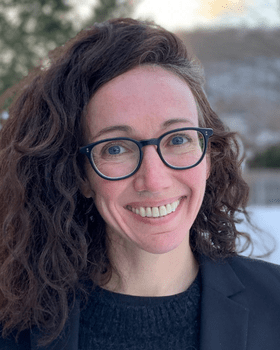Project Menu
Scaling Up Solar for Under-Resourced Communities - Single-Family Homes
Under the single-family homes portion of the DOE-funded Scaling Up Solar for Under-Resourced Communities, CESA promoted a program that has successfully supported the installation of more than 4,400 solar projects for LMI homeowners in Connecticut between 2015 and 2021. The program, a public-private partnership offered an elevated LMI solar incentive, as well as a financing and focused marketing initiative.
CESA, in collaboration with the Connecticut Green Bank, Inclusive Prosperity Capital, and PosiGen, formed a working group for state officials to learn more about Connecticut’s program and explore launching a publicly supported solar program for LMI homeowners in their states.
Through CESA’s working group, state officials accessed resources for designing and implementing solar programs for LMI homeowners, requested technical assistance from the members of the project team, and obtained other support for establishing solar programs for LMI homeowners in their state. All of our resources from this project are available from the Scaling Up Solar resources page.
Building Your Single-Family Homes State Program
Learn
- This January 2020 CESA fact sheet covers the basic design elements of CGB’s Solar for All program - 3 minutes reading time.
- This January 2020 CESA white paper offers additional resources and some elements to consider when designing an LMI solar program - 15 minutes reading time.
- This May 2021 Lawrence Berkeley National Lab report analyzed the financial performance of the Connecticut program - 1 to 2 hours reading time.
- Learn about similar programs in Hawaii –Green Energy Money $aver (GEM$) Energy Services Program– and in Rhode Island –Affordable Solar Access Pathways (ASAP)– and access template documentation to replicate and adapt this program in your state here.
Do
- This 2023 Solar for All Program Design Guidance for States offers insights and recommendations to state agencies to design and launch Greenhouse Gas Reduction Fund-compliant LMI Solar for All programs in their state, while maximizing tax credits and IRA tax credit bonuses.
- This 2023 Solar for All Template Request for Proposals helps states select one or more solar developers to deliver a solar program to disadvantaged communities and low-income households. The template RFP, to adapt based on local circumstances, is designed to comply with the Greenhouse Gas Reduction Fund requirements as well as work in tandem with the program administration proposed by Treasury for the low-income tax credit bonus program.
- This 2023 LMI Solar Lease Consumer Disclosure Form offers a template that states and other stakeholders can use to ensure that LMI customers participating in state programs designed to broaden solar access receive the information they need to understand their solar contracts.
Read more about CESA’s continuing LMI solar work under Solar for All here.
Featured Webinar: Evaluating the Financial Performance of Connecticut’s Low- and Moderate-Income Solar Lease Program
In this webinar, Lawrence Berkeley National Lab researchers Jeff Deason, Greg Leventis, and Sean Murphy discuss their findings about the financial performance of the Connecticut Green Bank/PosiGen solar leasing program.


